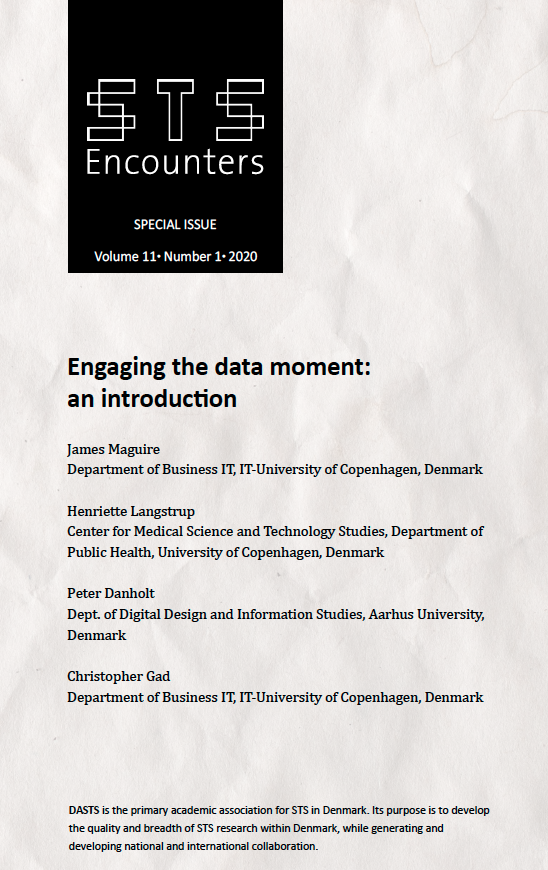Engaging the data moment
An introduction
DOI:
https://doi.org/10.7146/stse.v11i1.135273Keywords:
data moment, temporality, aesthetics, narration, qualitative- quantitative, experimentalAbstract
All of the contributions to this special issue are occupied with how to engage data otherwise. This otherwise indexes the rich variety of approaches to data beyond what we are currently witnessing. Whether through the development of politically and ethically relevant forms of data experiments, or the construction of alternative visions of the much-critiqued data infrastructures of powerful platform providers, all the articles reflect upon how we - as scholars and citizens - can live and work with data in ways amenable to diverse, critical, and ethical forms of social existence. This introduction intervenes in this debate in its own particular way, principally by considering what it means to characterise the contemporary as a data moment. The term data moment, we argue, works as a conceptual device calling for more ethical-political engagement with data practices. At the same time, it also retains a temporal inflection. Moments, we claim, are not sequential steps in a linear process, but are themselves productive of, and products of, temporal orders. Moments are also saturated in affect, we argue, and it is such affects that contribute to how particular forms of meaning emerge with/as data. By embracing the compelling empirical, theoretical and ethical challenges of this data moment our ambition with this special issue is to make a modest contribution to how scholars can engage data in the present, while also shaping a future where data are treated critically, ethically, and reflexively.

Downloads
Published
How to Cite
Issue
Section
License

This work is licensed under a Creative Commons Attribution-NonCommercial-ShareAlike 4.0 International License.
Starting with volume 15, articles published in STS Encounters are licensed under Attribution-NonCommercial-ShareAlike 4.0 International (CC BY-NC-SA 4.0). The editorial board may accept other Creative Commons licenses for individual articles, if required by funding bodies e.g. the European Research Council. Previous articles are not licensed under Creative Commons. In these volumes, all rights are reserved to the authors of the articles respectively.




